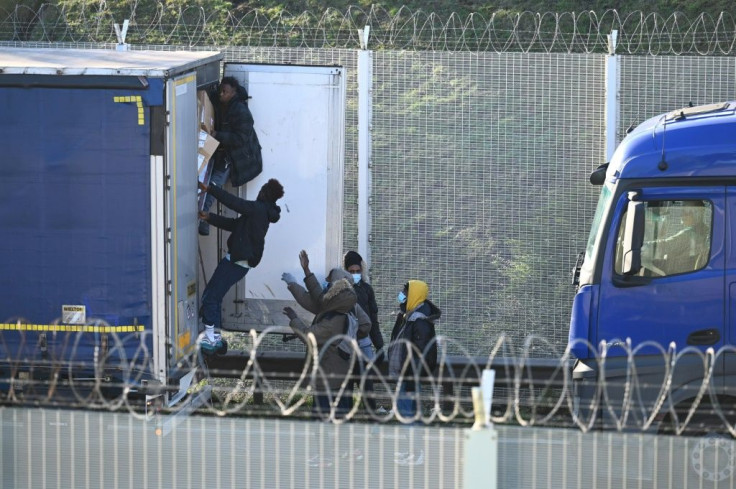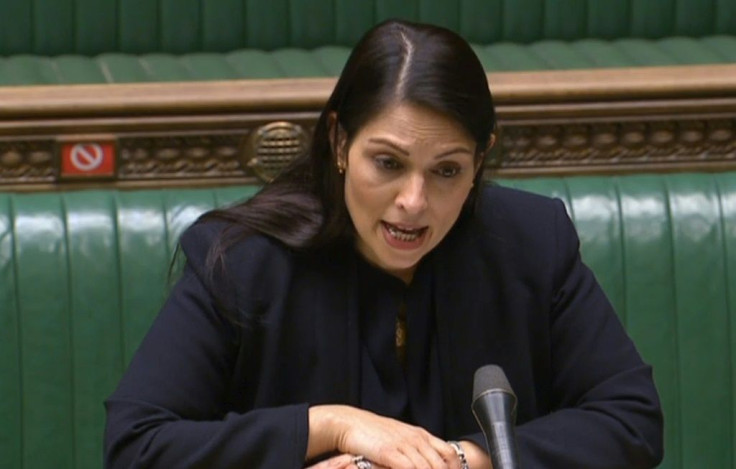UK Announces Biggest Asylum Overhaul 'In Decades'
The British government on Wednesday launched plans for what it called the biggest overhaul of asylum rules in decades, saying the current system was "overwhelmed".
Interior minister Priti Patel said the "New Plan for Immigration" would be based "on genuine need of refuge, not on the ability to pay people smugglers", but drew fire from refugee groups for political cynicism.
Addressing parliament, Patel said she was introducing the plan to reflect changes in approach after Britain regained full control of migration policy following its Brexit departure from the European Union.
"I'm introducing the most significant overhaul of our asylum system in decades, a new comprehensive, fair but firm long-term plan," the home secretary said.

"Because while people are dying, we have a responsibility to act."
The immigration system was too often "open to abuse" and had become "overwhelmed" with a backlog of 109,000 asylum claims, Patel said.
The Home Office said that on Tuesday, the UK coast guard intercepted 183 illegal migrants heading across the Channel from France -- a record high for this year.
French authorities held an estimated 50 people in another attempted crossing.

"We've got to break this people-smuggling model, we've got to put in safe and legal rules, and we've actually got to be able to help genuine asylum seekers, not just flee persecution, but be resettled in the United Kingdom," Patel said.
Last year, roughly 8,500 people arrived in Britain having made the perilous crossing of one of the world's busiest shipping lanes in small boats.
Tightening immigration rules and securing borders were key promises of those like Patel and Prime Minister Boris Johnson who argued for leaving the EU in Britain's 2016 Brexit referendum.
Johnson called the plan "firm and fair", adding it was a "positive step forward in our commitment to tackle illegal entry, punish people smugglers and safeguard those who are in genuine need of refuge".

Whether people enter Britain legally or illegally will affect how their asylum claim progresses under the proposals.
"If people arrive illegally, they will no longer have the same entitlements as those who arrive legally, and it will be harder for them to stay," said Patel.
"If, like over 60 percent of illegal arrivals, they have travelled through a safe country like France to get here, they will not have immediate entry into the asylum system -- which is what happens today," she added.
Mike Adamson, chief executive of the British Red Cross, responded: "We should not judge how worthy someone is of asylum by how they arrived here.
"The proposals effectively create an unfair two-tiered system, whereby someone's case and the support they receive is judged on how they entered the country and not on their need for protection," he said.
"This is inhumane."
The government will also seek to reform the judicial process to speed up removal of illegal immigrants, said the Home Office, and make it "much harder for people to be granted refugee status based on unsubstantiated claims".
More stringent age assessment tests will also take place "to stop adult migrants pretending to be children".
The opposition Labour party's interior spokesman, Nick Thomas-Symonds, said he feared the plans would do "next to nothing to stop people making dangerous crossings, and risk withdrawing support from desperate people, such as victims of human trafficking".
Enver Solomon, chief executive of the Refugee Council, accused the government of separating "the deserving and undeserving refugee by choosing to provide protection for those fleeing war and terror based on how they travel to the UK".
© Copyright AFP {{Year}}. All rights reserved.




















